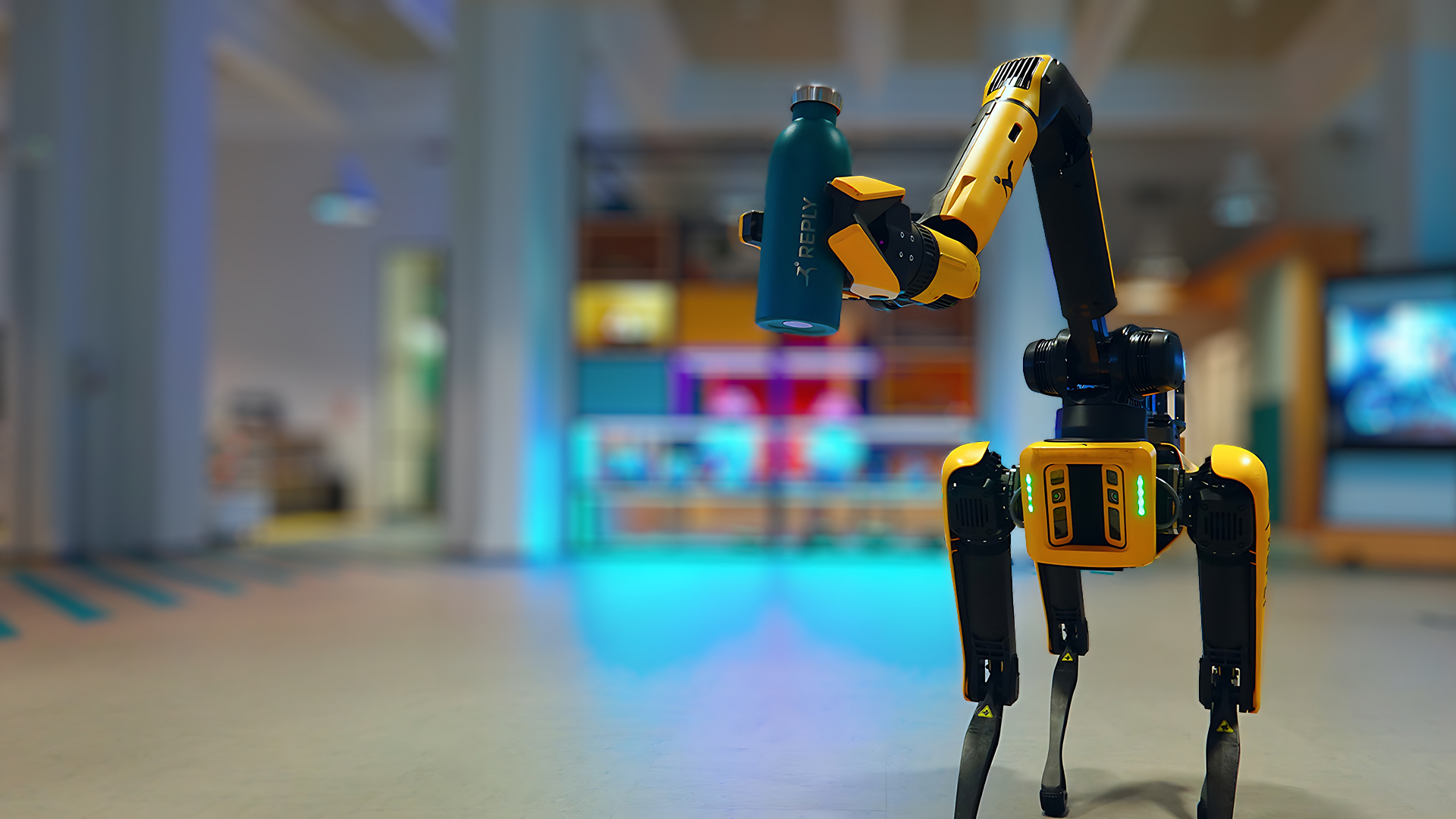Reply AI Challenges
AI Film Festival and AI Music Contest: Reply Challenges where Artificial Intelligence merges with human creativity.
WE BELIEVE
It's not the ability to have a vision, it's the ability to make it real that will get you ahead in your business.
Innovation is no accident. Your tomorrow can only be as great as the vision you have today.
You can do more than looking forward. The best way to predict the future is to create it.
Don't just tell your visions, make them. Words may inspire, but it is by doing that you will show the true potential.
Don’t make it one day; make it day one. The only impossible revolution is the one that never begins.
Where you can find us
WE MAKE
Bringing innovation across all industries
)
A new AI generation Marble
Premiering in Milan during Design Week, "A new AI generation Marble", where technology, design sensibility and sustainability come together, opening up a future full of new possibilities.
,allowExpansion;Resize,width=660)
)
Journey to low-code
,allowExpansion;Resize,width=660)
Meet Rose, the Digital Human
,allowExpansion;Resize,width=660)
Reply Labs
;Resize,width=660)
Enhancing Cloud Services of an Oil & Gas company
A program for a multinational Oil & Gas company, based on defining a new Cloud Operating Model, to improve key elements from the customer’s existing Cloud Platform.
;Resize,width=660)
Wealth Management observatory | Q4 2024
As of December 31 of 2024 there has been an increase in AUM of approximately €124 billion compared to the figure recorded in 2023 (+16%). Find out more in the extract from e*finance Wealth Management Reply's Quantitative Observatory.
,allowExpansion;Resize,width=660)
Global bank cloud migration programme
How we set up the framework for the bank’s rapid and game-changing move to public cloud, while also establishing new ways of working and new architectural and security principles.
;Resize,width=660)
Pervasive Security: a new way of thinking
The Pervasive Security paradigm, created by Reply experts, is a new approach to cybersecurity that integrates seamlessly with modern strategies for digital services implementation.
,allowExpansion;Resize,width=660)
"Please don't buy", change the way you dress
Please Don't Buy is a Twinset initiative that promotes the rental of clothes directly from the manufacturer. Retail Reply has designed an online and in-store experience, guiding the client through every step of the project.
;Resize,width=660)
;Resize,width=660)
;Resize,width=660)
;Resize,width=660)
,allowExpansion;Resize,width=660)
,allowExpansion;Resize,width=660)
,allowExpansion;Resize,width=660)
)
,allowExpansion;Resize,width=660)
,allowExpansion;Resize,width=660)
)
;Resize,width=660)
)
,allowExpansion;Resize,width=660)
,allowExpansion;Resize,width=660)
,allowExpansion;Resize,width=660)
,allowExpansion;Resize,width=660)
,allowExpansion;Resize,width=660)
)
,allowExpansion;Resize,width=660)
;Resize,width=660)
;Resize,width=660)
;Resize,width=660)
,allowExpansion;Resize,width=660)
)
,allowExpansion;Resize,width=660)
)
,allowExpansion;Resize,width=660)
)
,allowExpansion;Resize,width=660)
)
,allowExpansion;Resize,width=660)
)
;Resize,width=660)
,allowExpansion;Resize,width=660)
)
,allowExpansion;Resize,width=660)
)
,allowExpansion;Resize,width=660)
,allowExpansion;Resize,width=660)
)
;Resize,width=660)
,allowExpansion;Resize,width=660)
)
,allowExpansion;Resize,width=660)
)
;Resize,width=660)
;Resize,width=660)
,allowExpansion;Resize,width=660)
)
,allowExpansion;Resize,width=660)
)
,allowExpansion;Resize,width=660)
)
,allowExpansion;Resize,width=660)
)
,allowExpansion;Resize,width=660)
,allowExpansion;Resize,width=660)
)
,allowExpansion;Resize,width=660)
)
,allowExpansion;Resize,width=660)
)
,allowExpansion;Resize,width=660)
,allowExpansion;Resize,width=660)
,allowExpansion;Resize,width=660)
)
,allowExpansion;Resize,width=660)
,allowExpansion;Resize,width=660)
)
,allowExpansion;Resize,width=660)
)
,allowExpansion;Resize,width=660)
,allowExpansion;Resize,width=660)
,allowExpansion;Resize,width=660)
,allowExpansion;Resize,width=660)
)
,allowExpansion;Resize,width=660)
)
,allowExpansion;Resize,width=660)
)